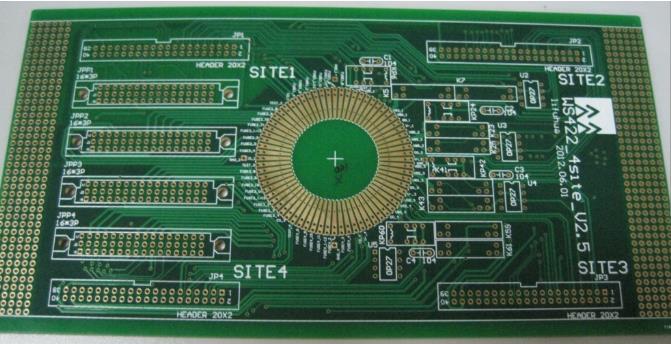1. Processing technology and application of FPC flexible board
FPC flexible board, also known as soft board, flexible board, flexible circuit board, is a kind of flexible insulating substrate (polyimide or polyester film used in general production) with high reliability and excellent performance. Flexible printed circuit board. Knowing its process in the factory will be of great benefit to the design of electronic engineers.
Features of FPC flexible board:
The flexible circuit board has the characteristics of high wiring density, light weight, thin thickness and good bendability. Flexible circuit boards are the only solution to meet the miniaturization and mobile requirements of electronic products. It can be bent, wound, and folded freely, can withstand millions of dynamic bending without damaging the wire, can be arranged arbitrarily according to the space layout requirements, and can move and expand in three-dimensional space, so as to achieve the integration of component assembly and wire connection The flexible circuit board can greatly reduce the volume and weight of electronic products, and is suitable for the development of electronic products in the direction of high density, miniaturization and high reliability.

According to the number of layers of the circuit: single-sided FPC, double-sided FPC, multi-layer FPC
According to physical strength: flexible PCB, rigid-flex PCB
By substrate: polyester substrate type, organic fiber substrate type, polytetraoxyethylene dielectric film substrate type, etc.
According to whether there is an enhanced layer: with enhanced FPC, without enhanced FPC
According to the wiring density: ordinary FPC, high-density interconnection (HDI) type FPC
Application industry of FPC flexible board:
FPC has been widely used in aerospace, military, mobile communications, laptop computers, computer peripherals, PDAs, digital cameras and other fields or products. Our very common flexible board is the internal connection line of the computer hard disk drive (HDD). At present, the market potential of flexible circuit technology in portable devices (such as mobile phones) is very large.
2. The thermal performance and mechanical performance characterization scheme of flexible circuit board
Flexible circuit board (FPC), also called soft board, is a kind of printed circuit board made of flexible copper clad laminate (FCCL) with high reliability and excellent flexibility. It has high wiring density, light weight, Features of thin thickness and good bendability. FPCs are used in almost all electronic products. For smart terminal devices, such as mobile phones, tablets, laptops, watches, etc., FPCs are used to manufacture radio frequency antennas and high-speed transmission lines.
Flexible copper clad laminate (FCCL) refers to a copper clad laminate formed by bonding with copper foil on one or both sides of flexible insulating materials such as polyester film or polyimide film after a specific process. Flexible copper clad laminates are processing materials for flexible circuit boards, usually containing at least two materials, one is an insulating substrate, such as polyimide (PI) film, and the other is a metal conductor film, mainly copper foil.
The performance of the insulating substrate determines the final physical and electrical properties of the soft board. Under the current trend of high-frequency, high-speed transmission, and miniaturization, insulating substrates are required to have low dielectric constant and loss factor, low moisture absorption, high heat dissipation, high heat resistance, good reliability, and good structural stability. . At present, modified polyimide (ModifiedPI, MPI) or liquid crystal polymer (LCP) is a solution to the requirements of terminal antenna materials for the development of 5G network communications.
Whether it is polyimide, modified polyimide or liquid crystal polymer, its performance in specific applications has temperature dependence, humidity dependence and time (frequency) dependence. Accurately test its thermal analysis and mechanical parameters, such as glass transition, melting, thermal decomposition, thermal deformation, thermal expansion, water vapor adsorption, modulus and damping, fatigue, thermal conductivity, etc., to obtain use temperature, thermal stability, moisture absorption, etc., Structural stability, impact resistance, life cycle, heat dissipation and other characteristics. Therefore, the characterization of related properties of polyimide, modified polyimide and liquid crystal polymer is very important for their practical applications.